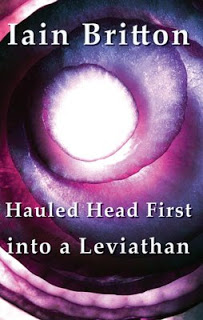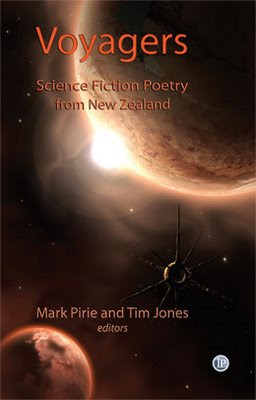This is a post for NZ Speculative Fiction Blogging Week.
At Au Contraire, I gave a talk about getting speculative fiction published in New Zealand. This and the following post are an attempt to capture what I said at the workshop, and later said I would write up for SpecFicNZ. Part 1 focuses on short fiction. Part 2 will look at novels.
I am sure to have missed various things, so please give details of additional publishers and markets in the comments.
I’m in no way suggesting that speculative fiction writers should confine their efforts to submitting stories in New Zealand – but there are lots of guides to submitting to overseas markets, so you check these out if that’s where you want to concentrate your efforts.
Finally, I’m concentrating here on fiction written for adults, rather that written for the YA/MG/children’s markets.
Magazines
There is one currently active magazine market for short speculative fiction (and poetry) that I know of in New Zealand: Semaphore Magazine. Semaphore Magazine is published quarterly, with an annual anthology. It pays for short fiction and poetry. Editor Marie Hodgkinson says “I want to further increase the proportion of work written by New Zealanders that is published in the magazine, with particular regard to the representation of non-Pakeha and LGBQT writers”.
Other paying sf magazine markets, like Prima Storia, appear to have come and gone. If you know of any others that are active, please let me know.
The good news is that it is possible to get speculative fiction published in several New Zealand literary magazines. JAAM, Sport, Bravado and Turbine have all published stories that can be considered speculative fiction, and Landfall’s recent themed issue on utopias and dystopias skirted similar territory.
Having said that, you probably wouldn’t get too far submitting that 9000-word interplanetary war story based on the latest developments on black hole physics to a New Zealand literary magazine, or for that matter your Xena-meets-Spartacus fanfic (though I’m there with bells on!). The softer, near-future end of SF; SF satires; urban fantasy; and stories which show an awareness of their own telling are more likely to appeal. If in doubt, add more irony – one writer told me that he sold two previously rejected stories to NZ literary magazines by retelling them in an ironic manner.
Competitions
SF and fantasy will be a tough sell to most of the big New Zealand short story competitions, which tend to favour heads-down, no-nonsense mimetic realism, but the fiction section of the annual Royal Society of New Zealand Manhire Prize for Creative Science Writing has to be worth a crack – though this year’s deadline has just passed. Bugger!
Your chances of doing well in a competition are strongly correlated with who’s doing the judging. Check out what the judge writes, and what types of fiction they say they like, and then decide whether it’s worth submitting. (Of course, in a large competition, your story may have to survive a filtering process before it reaches the named judge.)
Anthologies
By their nature, anthologies are intermittent – other than the annual Best New Zealand Fiction series – so you have to keep a weather eye out for submission guidelines. I’ve had a number of stories published in New Zealand anthologies over the years: my first two published stories were in an anthology of sf stories for NZ secondary schools (though most of the stories had originally been written for an adult audience), and a new-writers’ anthology.
There have been occasional anthologies of New Zealand speculative fiction, such as Rutherford’s Dreams, and this year there’s a brand-new entrant in the field: A Foreign Country: New Zealand Speculative Fiction, published by Random Static. Random Static say that another short story anthology isn’t on their immediate horizon, but they will be looking to publish novellas.
I’ll return to Random Static when I cover markets for novels.
Just as the identity of the judge is the most important thing to know in a competition, so the name and inclinations of the editor are the most important thing to know when considering a submission to a general fiction anthology. Have they written SF or fantasy or horror, or anything that isn’t set in our consensus reality? Have they said nice things about speculative fiction? Have they included speculative fiction stories in previous anthologies?
Do the research, and then go for it.
Collections
You’ll be doing very well to get an entire collection of speculative fiction published by a mainstream New Zealand publisher. My recent collection Transported is about 1/3 sf and fantasy, and I think that hurt it with some mainstream reviewers (though others liked the mix).
However, in the publishing industry, all is in flux. As with any other aspect of publishing, you need to keep your ear to the ground, your eyes peeled, your shoulder to the grindstone, and in general contort yourself in strange ways to get the best picture of what’s going on and where the opportunities are.
“Hah!”, you might be thinking, “I don’t even get out of bed for less than 80,000 words”. In that case, stick around for Part 2, where I’ll look at the options for getting speculative fiction at novel length published in New Zealand.




